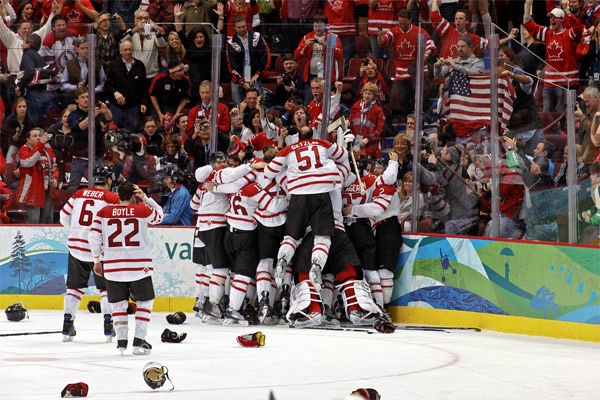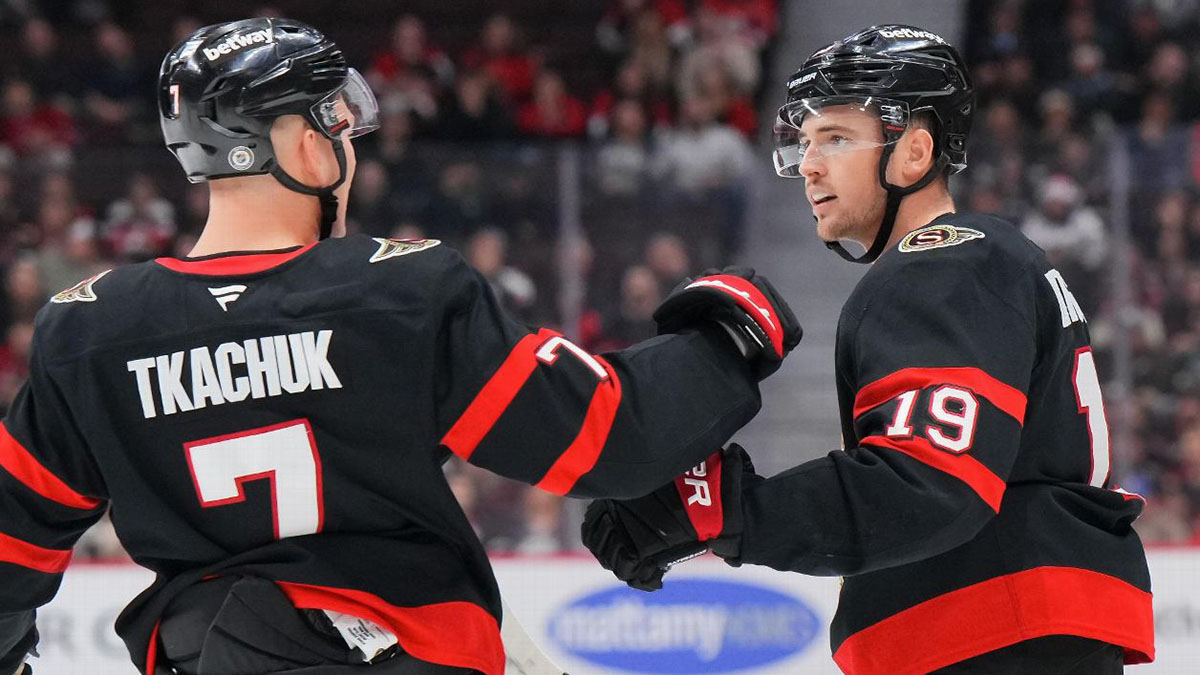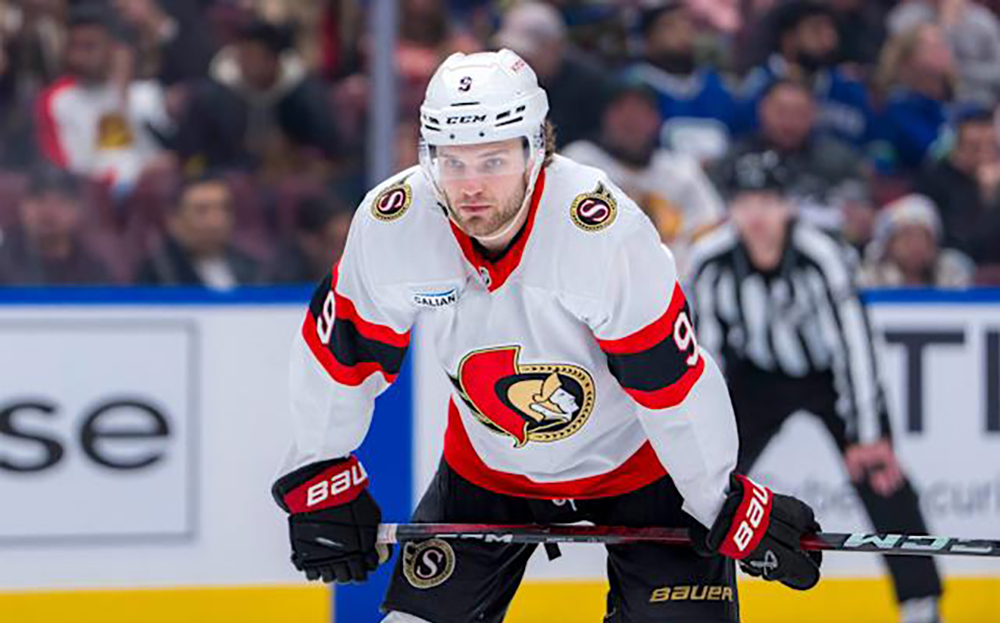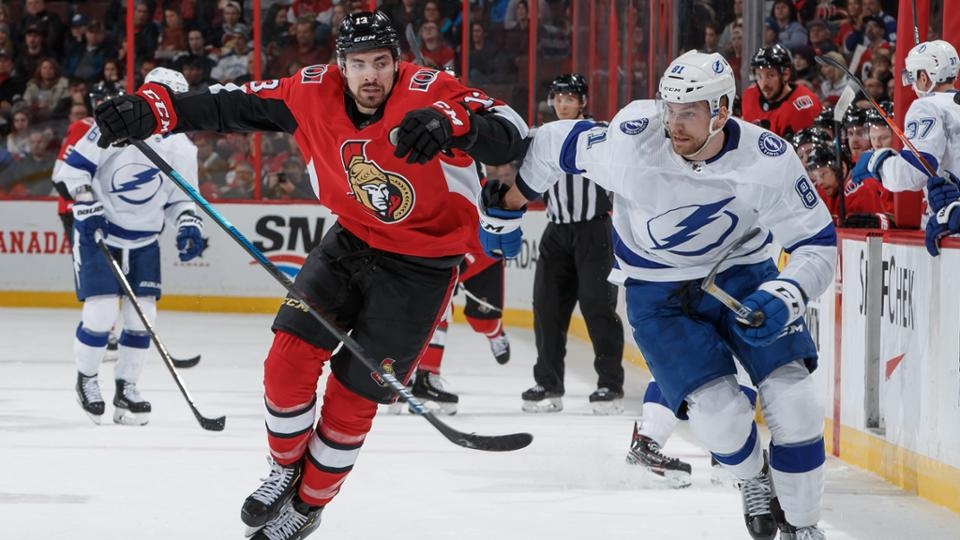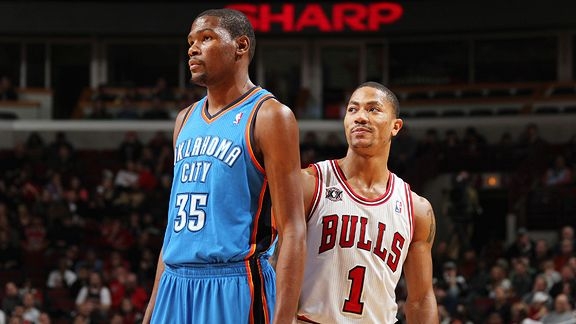
NBA Preseason Power Rankings: Part Two
The condensed 2011-12 NBA season is set to begin on Christmas Day. On Wednesday, we previewed the teams slated to finish out of the postseason this year. All teams are separated into tiers, based on their projected performance in 2011-12. Once again, the rankings shouldn’t be taken as an indicator of the team’s exact finish in the standings, but an estimate of their chances of winning the NBA championship.
Here is part two of the NBA Preseason Power Rankings: the playoff teams.
***
Playoff Teams (teams that should reach the postseason, with the chance to win a round)
16. Philadelphia 76ers
Philadelphia is banking on the internal improvement of its young core – in particular, guards Jrue Holiday and Evan Turner and center Spencer Hawes – to secure another playoff berth. Swingman Andre Iguodala would be best suited to a Luol Deng-type role as the second- or third-option on a contending team, but the Sixers have committed to building around their versatile defensive stopper. They’ll be hard-pressed to make any improvement in the standings without free agent help, which likely won’t arrive until Elton Brand’s albatross contract comes off the books in 2013.

15. Orlando Magic
Through a series of baffling decisions designed to placate pending free agent Dwight Howard, Orlando has set itself up for a grim future. Last December, they shipped Vince Carter and gifted center Marcin Gortat to Phoenix for the uninspiring Hedo Turkoglu, reassuming Turkoglu’s 5-year, $53 million contract, which he had signed with the Magic in 2009. This offseason, they re-signed 30-year old shooting guard Jason Richardson, also acquired in the Turkoglu deal, for $25 million over four years. They traded Brandon Bass for Glen Davis, which would have made sense if Bass weren’t better, cheaper and more mature than Davis.
Orlando’s fortunes are centred entirely on Howard. He could choose to stay in Orlando (which he has no reason to do, given the state of the current roster), guaranteeing the Magic a first- or second-round playoff exit for the next several years. He could push for a trade (which he has already done); Orlando’s best option would be to flip Howard to the Nets for Brook Lopez (a talented young center who could match maybe 70% of Howard’s output on offense, and 10% on defense) and a multitude of first-round picks. Or he could bolt next summer in free agency, leaving the Magic with nothing but a slew of aging role players with hefty contracts (which is worse than being left with nothing). Expect a trade to happen soon, though knowing the Magic, they may just let Howard walk.
14. Portland Trail Blazers
Despite missing shooting guard Brandon Roy and center Greg Oden for considerable chunks of time, Portland has averaged 51 wins over the last three seasons. Unfortunately, it looks like Roy’s early retirement and Oden’s prolonged injury troubles will finally catch up to the Blazers in 2011-12. There’s still cause for excitement: LaMarcus Aldridge has emerged as an interior force; Raymond Felton, deemed expendable in Denver, was a savvy pickup via trade; Gerald Wallace is showing no signs of slippage after 10 years in the league; and Jamal Crawford and Nicolas Batum will provide scoring punch off the bench. None will have the impact of a healthy Roy or Oden, of course. With shrewd decision-making and a little luck, the Blazers could have set themselves up as championship contenders for the foreseeable future. Now? They’re just another team fighting to stay relevant in the powerful Western Conference.
13. Atlanta Hawks
Not talented enough to compete for a title now or young enough to envision future championships, Atlanta is the most profoundly mediocre of the NBA’s top clubs. The Hawks are hamstrung by Joe Johnson’s obscene contract (about $21 million on average over the next five years for a one-dimensional shooting guard on the decline), as well as the lavish deals awarded to forwards Josh Smith and Al Horford. Atlanta will never improve in the top-heavy Eastern Conference, and with the fiscally creative Indiana Pacers and the star-studded New York Knicks nipping at their heels, a fourth consecutive second-round appearance is not a safe bet.
12. Indiana Pacers
By following the small-market blueprint of assembling a cap-friendly roster that can roll nine or 10 players deep, the Pacers have quietly constructed a team capable of causing havoc in the NBA playoffs. After pushing Chicago in a series far closer than the five games it took to conclude, Indiana nabbed power forward David West in free agency and traded for guard George Hill. Indiana will roll out an intriguing starting lineup of Darren Collison, Paul George, Danny Granger, West and Roy Hibbert, with Hill and rugged forward Tyler Hansbrough set to anchor a reliable second unit. The condensed season will favour young, deep teams like the Pacers, who present a refreshing alternative to the perpetually disappointing Hawks.

11. San Antonio Spurs
The Spurs sprinted out to a 40-7 record in the first three months of the 2010-11 season, coasted to the first seed in the Western Conference and were ousted in the first round of the playoffs by the Memphis Grizzlies. It’s difficult to see San Antonio replicating their torrid start under the abbreviated schedule, and even harder to picture the team’s aging core entering the playoffs with both healthy bodies and a high seed.
While some have pegged the loss to Memphis as a result of a particularly unfavourable matchup (the Grizzlies’ low-post duo of Zach Randolph and Marc Gasol simply overwhelmed the Spurs’ undermanned front line), their early elimination looks like the first sign of slippage for the Spurs dynasty. Tim Duncan, Manu Ginobili and Tony Parker have logged too many miles, and the supporting cast is unprepared to compensate. They’ll make the playoffs until Duncan retires, but San Antonio’s championship window looks to have come to a close.
10. New York Knicks
Pro: The Knicks have Carmelo Anthony and Amare Stoudemire. Con: Their decision to exercise the amnesty clause on Chauncey Billups has left their backcourt in ruins, with combo guard Toney Douglas, rookie combo guard Iman Shumpert, the injured Baron Davis and the ghost of Mike Bibby their options at point guard. Pro: By waiving Billups, the Knicks were able to sign Tyson Chandler, one of basketball’s best defensive centres and the second-most important player on the champion Dallas Mavericks. Con: Stoudemire and Chandler are both notoriously injury-prone, and the depth beyond the “Big 3” rivals the 2010-11 Miami Heat’s abomination of a bench. Solution? By signing a cheap point guard next offseason (Steve Nash, anyone?), praying that Stoudemire and Chandler’s knees hold up and waiting for the aging Boston Celtics to erode, the Knicks will soon be competing for division and conference titles.
9. Los Angeles Lakers
Included in the top 10 by default because of Kobe Bryant, Pau Gasol and Andrew Bynum. What remains after them? The Lakers had to give away Lamar Odom to their biggest rivals for nothing in the aftermath of the aborted Chris Paul deal, leaving them with no weapons off the bench. Metta World Peace has lost his jump shot and ability to log heavy minutes on defense, along with his former name. Neither Derek Fisher nor Steve Blake is an effective backup at this point, yet one will be forced to start at point guard. Matt Barnes, Troy Murphy, Luke Walton and Jason Kapono will all be expected to make significant contrubutions. Josh McRoberts, of all people, is their fourth-best player.
For all his talent, Gasol is prone to down stretches, and is hardly a bargain at $19 million over three more seasons. Although he’s just 24 and has six years of pro experience, Bynum is still very raw offensively, and will miss the first five games of the season after his forearm shiver on JJ Barea in last year’s playoffs. Things are hardly as grim as the Smush Parker salad days of 2006, but Bryant is no longer able to perform his usual yeoman’s work. Will the Kobe/Laker mystique be enough to succeed in a shortened season with no other guards, no depth and no Phil Jackson at the helm? This is not the same Kobe, and these are not the same Lakers.
8. Boston Celtics
Included in the top 10 by default because of Rajon Rondo, Ray Allen, Paul Pierce and Kevin Garnett. What remains after them? After engaging in a heavy, fruitless pursuit of Chris Paul (reportedly at Rondo’s expense) and failing to snag David West in free agency, Boston’s biggest offseason move was swapping Glen Davis for Brandon Bass as the backup power forward (a rearrangement of the deck chairs, if anything). Forward Jeff Green will miss the year with a heart condition, leaving Bass as the only legitimate offensive weapon off the bench. There are no reliable backups for Rondo, Allen or Pierce, and the only options at center are (gulp) Jermaine O’Neal and Chris Wilcox.
If Boston’s vaunted Big Four are any two things, they are proud and they are capable defensively, boasting the league’s stingiest defense in terms of points allowed in 2010-11. The Celtics’ elder statesmen are simply not built for an 82-game season, however, much less a 66-game schedule condensed into four short months. Can Allen and Pierce log heavy defensive minutes against guys like Dwyane Wade and LeBron James, with no reprieve from the bench and while shouldering the majority of the burden on offense? Can Garnett handle the burden of back-to-back-to-back games? Can Rondo remain steady after being shopped heavily throughout the offseason? These are not the Celtics of 2008, or even 2010, and they are not a team capable of winning the NBA championship.
FRINGE CONTENDERS (teams with a chance to win 2 or 3 playoff rounds)

7. Memphis Grizzlies
Memphis threw a wrench into last year’s playoffs by topping the Spurs in a surprisingly one-sided six-game series. Buoyed by one of the NBA’s most vibrant crowds, the Grizzlies would overcome the loss of swingman Rudy Gay (sidelined with a shoulder injury) and come within a game of the Western Conference Finals. As small-market teams go, Memphis is basically a rich man’s Indiana Pacers, with Mike Conley and OJ Mayo holding the edge over Darren Collison and Paul George in the backcourt and Gay and Danny Granger mirroring each other on the wing. The Grizzlies hold a decided advantage over Indiana (and the rest of the league) in the frontcourt: Zach Randolph has overcome weight and attitude issues to develop into one of the league’s few low-post beasts, while Marc Gasol has emerged from his older brother’s shadow as one of the game’s top centers.
There is cause for concern: backup forward Darrell Arthur will miss the entire season with a torn Achilles tendon, leaving Hamed Haddadi, a 7-2 center who averaged 6 minutes a game last year, as the primary backup to Randolph and Gasol. For all their low-post dominance, Memphis is not a particularly good shooting team (Gay led the team last year at 39%), allowing opponents to load up against the Grizzlies’ interior threats. Regardless, Gay’s return from injury has Memphis primed to build upon its Cinderella playoff run, to claim its place among the top Western Conference clubs and to raise hell in the postseason once again.
6. Denver Nuggets
Yes, this may be a bit of a stretch for a team that starts Andre Miller, Rudy Fernandez, Jordan Hamilton, Kenneth Faried and Chris Andersen– wait, sorry, that’s Denver’s second unit. The Nuggets’ starting lineup will actually feature Ty Lawson, Arron Afflalo, Danilo Gallinari, Al Harrington and Nene Hilario, a solid group even without the menacing cast of reserves behind them. The Nuggets have the personnel and the fresh legs to push the pace on offense, finishing first in both points-per-game and offensive efficiency in 2010-11.
Much like Portland or Indiana, the Nuggets are built to play 66 games in 120 days. While they lack a player with the singular ability of LaMarcus Aldridge, Danny Granger or David West, they boast unparalleled depth, allowing them to play 11 players upwards of 22 minutes a game, like they did in 2010-11. (Former Nuggets J.R. Smith, Wilson Chandler and Kenyon Martin are all currently playing in China, and one or more could sign with Denver when their seasons end in February or March.) By dealing troubled superstar Carmelo Anthony to the Knicks last February, Denver has afforded itself both on-court and financial flexibility, constructing a likeable roster that will score in bunches and is poised to take the next step in the Western Conference.
5. Los Angeles Clippers
Lob City’s most celebrated offseason addition (and rightfully so) will be Chris Paul, the league’s best pure point guard and the perfect table-setter for Blake Griffin and DeAndre Jordan. Rather than stop at Paul, the Clippers plucked Chauncey Billups off the waiver wire and poached Caron Butler from the champion Mavericks. They lack a true shooting guard after giving up budding star Eric Gordon, but can plug any two of their five veritable point guards (Paul, Billups, Eric Bledsoe, Mo Williams and Randy Foye) into both guard spots without missing a beat. The Clippers are flawed (one glaring issue is the lack of a post presence off the bench), but then again, so are a lot of teams. A Paul-Billups-Butler-Griffin-Jordan quintet should be enough to propel them into the top four in the Western Conference, with room for improvement from there.

4. Dallas Mavericks
The club that will open its championship defense on Christmas Day against the Miami Heat will have a decidedly different look than the lineup that clinched the title last June. Most of the key pieces are back, including the incomparable Dirk Nowitzki, super-subs Jason Terry and Shawn Marion and floor general Jason Kidd. Center Tyson Chandler is gone, as is shooting guard and LeBron James antagonist DeShawn Stevenson. In their places are former Lakers forward Lamar Odom, acquired for a draft pick after the fallout of the vetoed Chris Paul trade, and the well-travelled Vince Carter, signed as a free agent from Phoenix. Point guard Roddy Beaubois and free agent Delonte West are poised to offset the loss of slippery backup JJ Barea to Minnesota.
If we learned anything from the 2010-11 NBA season, other than not to count your chickens before they hatch, it was this: Never count out the Dallas Mavericks. That was then, however, before Chandler signed with the Knicks and left Brendan Haywood and Ian Mahinmi as Dallas’ only two centers. For all the brilliance of Nowitzki and Terry, Chandler keyed the title run on the defensive end, gobbling up rebounds, anchoring the defensive rotations and deterring countless drives to the basket, particularly against LeBron and Wade in the Finals. Even though Beaubois should seamlessly replace Barea, even though Carter is an upgrade over Stevenson, even though they poached Odom for nothing, even though Dirk and Terry and Marion and Kidd are still around… I just can’t see them doing it again without their peerless defensive captain.
(In other words, cue the Dallas comeback.)
CONTENDERS (teams that will contend for the NBA championship)

2b. Chicago Bulls
2a. Oklahoma City Thunder
There are only three teams that have a realistic chance to win the 2011-12 NBA championship. It’s nearly impossible to separate the first two, given the composition of the rosters and their trajectories to the top of the NBA. The Bulls measure themselves by their sterling defense, instilled by coach Tom Thibodeau and enforced by center Joakim Noah and perimeter stopper extraordinaire Luol Deng. The Thunder are wonderfully efficient on offense, with Russell Westbrook and James Harden operating out of the backcourt, Serge Ibaka popping jumpers from the elbow and Kendrick Perkins camping out under the basket.
Both teams are bolstered by terrific bench units, protecting leads and allowing the starters to rest during crucial interludes. Taj Gibson and Omer Asik give Chicago an extra boost in the frontcourt, while Thabo Sefolosha and Nick Collison often play late in games to reinforce the Oklahoma City defense. Thibodeau and Thunder coach Scott Brooks have both been lauded for the work they’ve done in dragging their teams from the lower echelons of the NBA and making them perennial contenders.
This is all without mentioning both teams’ undisputed leaders, the league’s two greatest young stars, each of who has racked up individual accolades and established their team among the NBA’s elite in their first few professional seasons. Derrick Rose is a one-man offensive machine for Chicago, driving the basket with reckless abandon, knocking down open shots and finding teammates for easy baskets. Kevin Durant is similarly effective on offense, drawing endless fouls and displaying unparalleled range from outside. Both franchises should be credited for managing to construct rosters that complement the strengths of their young stars so well.
Despite their youth, both the Bulls and Thunder have limited championship windows. Four Chicago starters (Rose, Deng, Noah and Carlos Boozer) earn eight figures in salary, while Westbrook, Harden and Ibaka are all set for lucrative extensions in the next few years. Chicago’s title hopes will depend on greater offensive output from its complementary players (particularly Boozer), while the Thunder must commit to defense on every possession and find a balance between Westbrook and Durant on offense. Both teams have come very far in a short period of team, and both are prepared to take the final step in 2011-12.
THE FAVOURITE
1. Miami Heat
The Miami Heat are the overwhelming favourites to win the NBA championship. They have LeBron James, Dwyane Wade and Chris Bosh. They have veteran stopper Shane Battier and a rejuvenated Mike Miller off the bench. They will have Udonis Haslem from the beginning of the season. Unlike Boston or the Lakers, they will be well equipped to handle the rigors of a condensed season. Once again, their depth is thin, particularly in the frontcourt, and they could find themselves in trouble if any of the Big Three go down for an extended period of time.
Regardless of their deficiencies, Miami is, once again, the most talented basketball team in the world. It remains to be seen whether or not they are the world’s best team, a title currently held by the Dallas Mavericks, a title wrested away last June from the Heat and their superstar leaders. This year, there will be no self-indulgent free agency specials or pre-season pep rallies. There will be no excuses. Miami has the personnel to take home the championship. They are the only team whose season will be deemed worthless if they fail to do so.
Six months from now, the Heat will still be alive in the NBA playoffs, attempting to reclaim the prize that was snatched from them by a lanky German and his devoted band of teammates. Their success won’t depend on their bench, or their coaching staff, or even the secondary superstars on the roster. Miami’s title shot rests on the will of one LeBron James, the man who announced his arrival in South Beach to the world, then disappeared for six days last June. What will he do?

